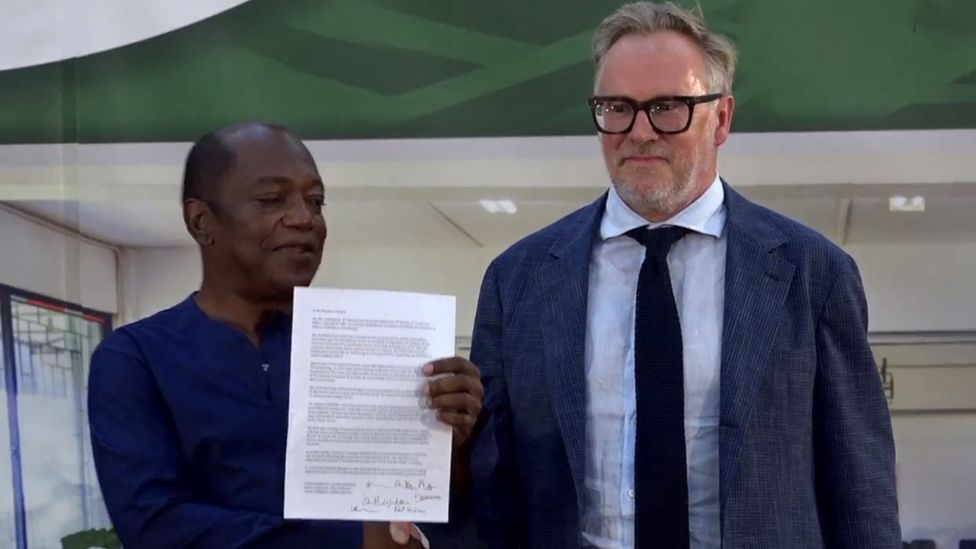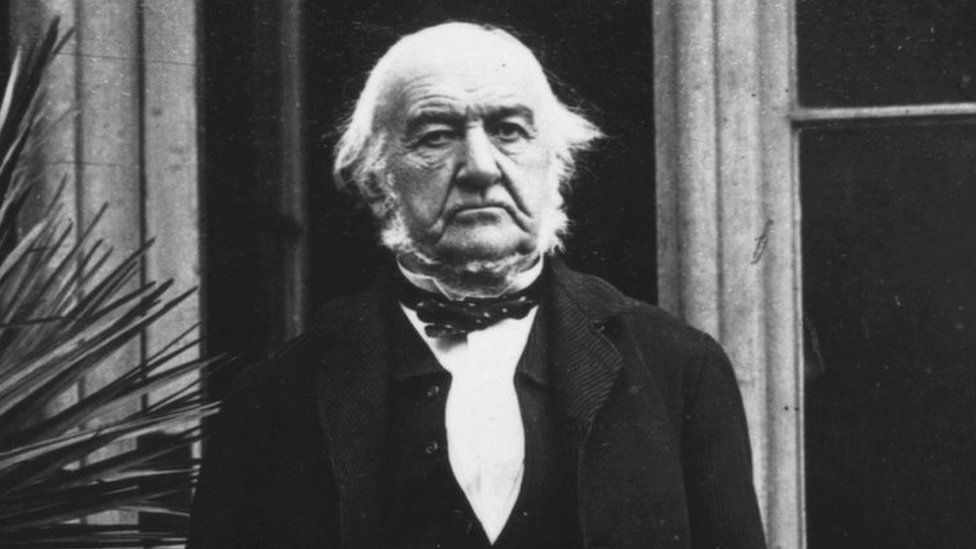
Guyana's President Mohamed Irfaan Ali arrives for the South American Summit at Itamaraty palace in Brasilia, Brazil, Tuesday, May 30, 2023. Irfaan Ali has on Thursday, Aug 24, 2023, lashed out at the descendants of European slave traders and said those who profited from the cruel, trans-Atlantic slave trade should offer to pay reparations to today’s generations.
(AP Photo/Gustavo Moreno, File)
Bert Wilkinson
The Associated Press
Published Aug. 24, 2023
GEORGETOWN, GUYANA -
Guyana president Irfaan Ali on Thursday lashed out at the descendants of European slave traders, saying those who profited from the cruel, trans-Atlantic slave trade should offer to pay reparations to today's generations.
The information you need to know, sent directly to you: Download the CTV News App
The leader of the South American country also proposed that those involved in the slave trade be posthumously charged for crimes against humanity.
Ali spoke ahead of Friday's planned formal apology in Guyana by the descendants of Scottish 19th-century sugar and coffee plantation owner John Gladstone, saying the apology should also include issues of compensation and reparative justice.
The president said that while he welcomed plans by the family to acknowledge what he called the sins of the past, it also implies "an acknowledgement of the cruel nature of African enslavement and indentureship in Guyana and an act of contrition that paves the way for justice. The Gladstone family has admitted that it benefited from African enslavement and indentureship on the Demerara and other plantations owned by its patriarch, John Gladstone."
Gladstone was the father of 19th-century British Prime Minister William Ewart Gladstone and received more than 100,000 pounds in compensation for hundreds of slaves.
The Gladstone family could not be immediately reached for comment.
Six members of the family are scheduled to arrive in the English-speaking nation later Thursday to participate in a brief ceremony at the University of Guyana on Friday, where they will formally apologize for the role John Gladstone played in what was then British Guiana.
Traveling with them is supposed to be former BBC journalist Laura Trevelyan, whose family earlier this year apologized to slave descendants in Grenada because her ancestors owned hundreds of slaves in that eastern Caribbean island.
Absentee plantation owner Gladstone, who owned more than 2,500 slaves in Guyana and Jamaica, never set foot in Guyana or in the neighboring West Indian islands, but was in charge when the renowned 1823 slave rebellion erupted on his plantation at Success Village on Guyana's east coast, about seven miles from the capital of Georgetown.
Historical records show that hundreds of revolting slaves were killed and their heads chopped off and lined on poles all the way to the capital as a reminder to others nursing similar ambitions as colonizers snuffed the two-day rebellion.
Making his case for reparations, Ali noted that demands by members of a Caribbean trade bloc for reparation payments have intensified. He argued that "reparations (are) a commitment to righting historical wrongs. The trans-Atlantic slave trade and African enslavement were an affront to humanity itself. The heinousness of this crime against humanity demands that we seek to right these wrongs"
Caricom nations, including Guyana, already have hired a British law firm to examine their case for financial compensation from Britain and other European nations. The trade bloc has said it was advised that its case is strong and should be pursued.
"The descendants of John Gladstone must now also outline their plan of action in line with the Caricom plan for reparatory justice for slavery and indentureship," Ali said.
The plan includes a formal apology and investment of billions in education, health, infrastructure and cultural revitalization to ensure that "future generations are unshackled from the chains of history."
A handful of nations have apologized for their role in slavery, including the Netherlands.
Guyana president Irfaan Ali on Thursday lashed out at the descendants of European slave traders, saying those who profited from the cruel, trans-Atlantic slave trade should offer to pay reparations to today's generations.
The information you need to know, sent directly to you: Download the CTV News App
The leader of the South American country also proposed that those involved in the slave trade be posthumously charged for crimes against humanity.
Ali spoke ahead of Friday's planned formal apology in Guyana by the descendants of Scottish 19th-century sugar and coffee plantation owner John Gladstone, saying the apology should also include issues of compensation and reparative justice.
The president said that while he welcomed plans by the family to acknowledge what he called the sins of the past, it also implies "an acknowledgement of the cruel nature of African enslavement and indentureship in Guyana and an act of contrition that paves the way for justice. The Gladstone family has admitted that it benefited from African enslavement and indentureship on the Demerara and other plantations owned by its patriarch, John Gladstone."
Gladstone was the father of 19th-century British Prime Minister William Ewart Gladstone and received more than 100,000 pounds in compensation for hundreds of slaves.
The Gladstone family could not be immediately reached for comment.
Six members of the family are scheduled to arrive in the English-speaking nation later Thursday to participate in a brief ceremony at the University of Guyana on Friday, where they will formally apologize for the role John Gladstone played in what was then British Guiana.
Traveling with them is supposed to be former BBC journalist Laura Trevelyan, whose family earlier this year apologized to slave descendants in Grenada because her ancestors owned hundreds of slaves in that eastern Caribbean island.
Absentee plantation owner Gladstone, who owned more than 2,500 slaves in Guyana and Jamaica, never set foot in Guyana or in the neighboring West Indian islands, but was in charge when the renowned 1823 slave rebellion erupted on his plantation at Success Village on Guyana's east coast, about seven miles from the capital of Georgetown.
Historical records show that hundreds of revolting slaves were killed and their heads chopped off and lined on poles all the way to the capital as a reminder to others nursing similar ambitions as colonizers snuffed the two-day rebellion.
Making his case for reparations, Ali noted that demands by members of a Caribbean trade bloc for reparation payments have intensified. He argued that "reparations (are) a commitment to righting historical wrongs. The trans-Atlantic slave trade and African enslavement were an affront to humanity itself. The heinousness of this crime against humanity demands that we seek to right these wrongs"
Caricom nations, including Guyana, already have hired a British law firm to examine their case for financial compensation from Britain and other European nations. The trade bloc has said it was advised that its case is strong and should be pursued.
"The descendants of John Gladstone must now also outline their plan of action in line with the Caricom plan for reparatory justice for slavery and indentureship," Ali said.
The plan includes a formal apology and investment of billions in education, health, infrastructure and cultural revitalization to ensure that "future generations are unshackled from the chains of history."
A handful of nations have apologized for their role in slavery, including the Netherlands.
Glc.yale.edu



No comments:
Post a Comment